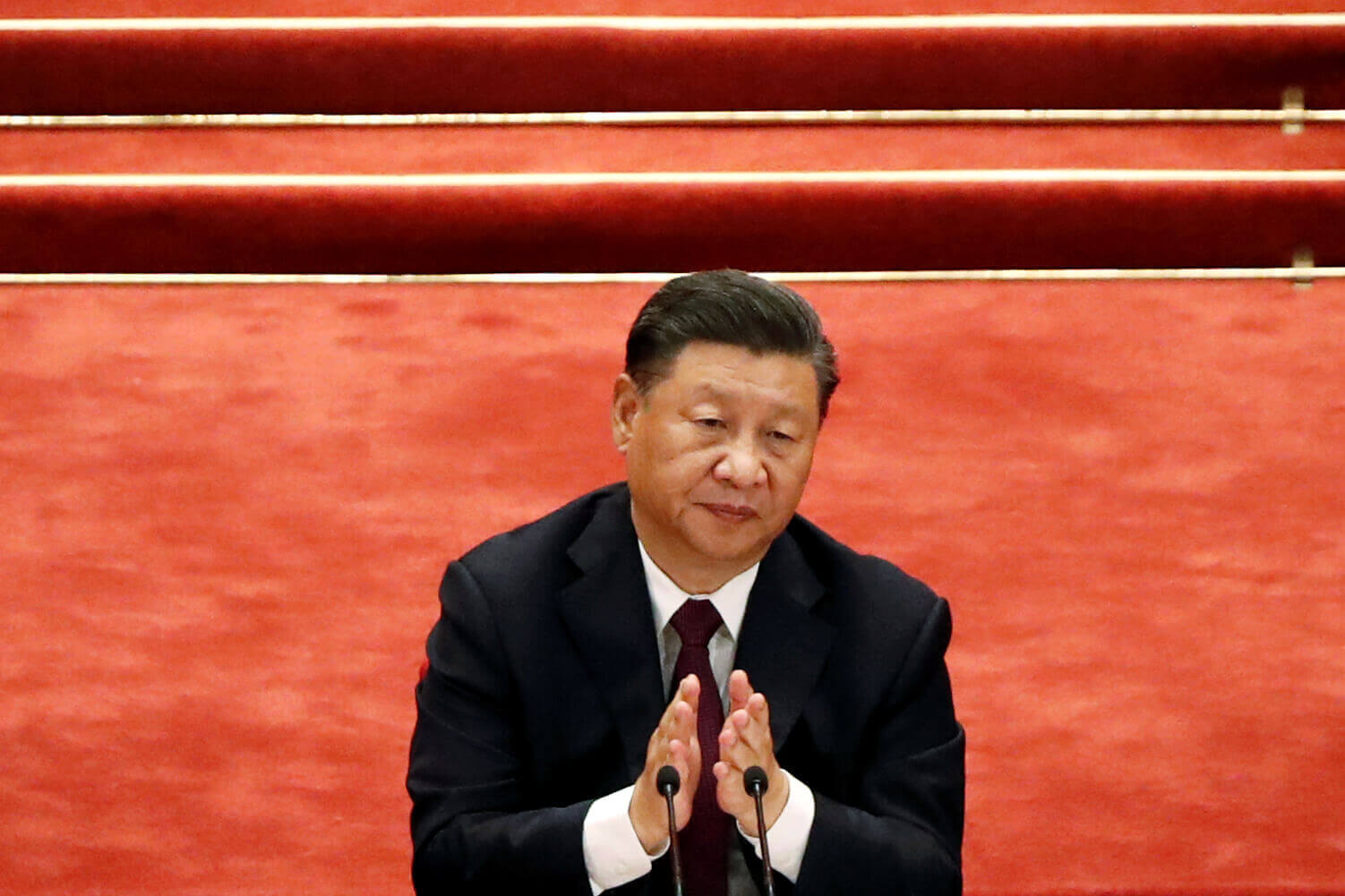On Sunday, Chinese President Xi Jinping spoke of strengthening diplomatic relations between Beijing and Dhaka to advance the construction of infrastructural projects that have been initiated in Bangladesh as a part of the former’s Belt and Road Initiative (BRI). The comment was made during an exchange with Bangladeshi President Mohammad Abdul Hamid on the 45th anniversary of China and Bangladesh’s diplomatic friendship.
According to Xinhua, Xi Jinping said that he “stands ready to work with his Bangladeshi counterpart, Abdul Hamid, to better align the two countries’ strategies and jointly promote the construction of the Belt and Road, so as to take the China-Bangladesh strategic partnership of cooperation to new heights.” He added, “Since the establishment of diplomatic ties 45 years ago, the two countries have always respected each other and treated each other as equals, enhanced political mutual trust and deepened mutually beneficial cooperation that brings tangible benefits to the two peoples.”
During a conversation with Bangladeshi Prime Minister Sheikh Hasina, Chinese premier Li Keqiang also echoed Xi Jinping’s call. He said that China wished to expand its “practical cooperation” with Bangladesh to promote the “steady and sustainable” growth of their partnership. Responding to this, Sheikh Hasina said that the “time-tested” diplomatic relations between the two countries have “unleashed enormous potential in maintaining peace, security and stability.”
China has already invested $26 billion and has committed to further fund projects worth around $38 billion in Bangladesh, which is emerging as one of the largest recipients of Chinese funding for the BRI. From 1 July, 97% of Bangladeshi exports to China have been exempted from tariffs. As a consequence of this agreement, 8,256 Bangladeshi products are now being exported tariff-free to China. In May, China also extended support to Bangladesh for its fight against the COVID-19 outbreak. Following a conversation between Xi Jinping and Sheikh Hasina, Bangladesh saw an intensification of Chinese medical assistance, with doctors from China’s Health Mission spending two weeks with the Bangladeshi government to advise them on measures to ease the impact of the pandemic.
China has invested a significant amount into infrastructural development in Bangladesh, Nepal, Sri Lanka, Pakistan, and the Maldives as a part of its BRI. Several international commentators have expressed concern about Beijing engaging in “debt diplomacy” or entangling countries in a “debt trap” through these projects. For India, however, the concerns are larger. The One Belt One Road (OBOR) project, which is a central part of the BRI, runs through Pakistan-administered Kashmir. This has led to several protests by Kashmiri residents and the Indian side, who believe that China’s actions are a violation of international law. Further, the increase of Beijing’s economic and political supremacy in South Asia also poses a security threat to India, who is trying to counter rising Chinese influence in the region.
However, India’s relations with Bangladesh have seen some difficulties over the past year. The problems crystallised following the adoption of the Citizenship (Amendment) Act (CAA) and the National Register of Citizens (NRC) in 2019. India has, however, attempted to revive its positive relations with Bangladesh. The first indication of this was the relief grants offered to Bangladesh to assist them in fighting the COVID-19 outbreak. Moreover, the two have also increased cooperation and collaboration by setting up mechanisms to monitor the development of bilateral projects. In fact, last Tuesday, Indian External Affairs Minister S. Jaishankar and Bangladeshi Foreign Minister Dr. AK Abdul Momen co-chaired the sixth meeting of the India-Bangladesh Joint Consultative Commission (JCC) and discussed several issues such as border killings and the Teesta water-sharing agreement.
Further, on Sunday, the Indian Navy and the Bangladesh Navy also commenced the second round of the two-day “Exercise Bongosagar,” which is a bilateral naval exercise conducted in the Bay of Bengal. According to Vivek Madhwal, the spokesperson for the Indian navy, the exercise will “develop interoperability and joint operational skills.”
Bangladesh Balances Strengthening Ties with India and China
As Xi Jinping called for strengthening the diplomatic friendship between Bangladesh and China, Bangladesh’s navy conducted exercises with India in the Bay of Bengal.
October 5, 2020

SOURCE: FINANCIAL EXPRESS
